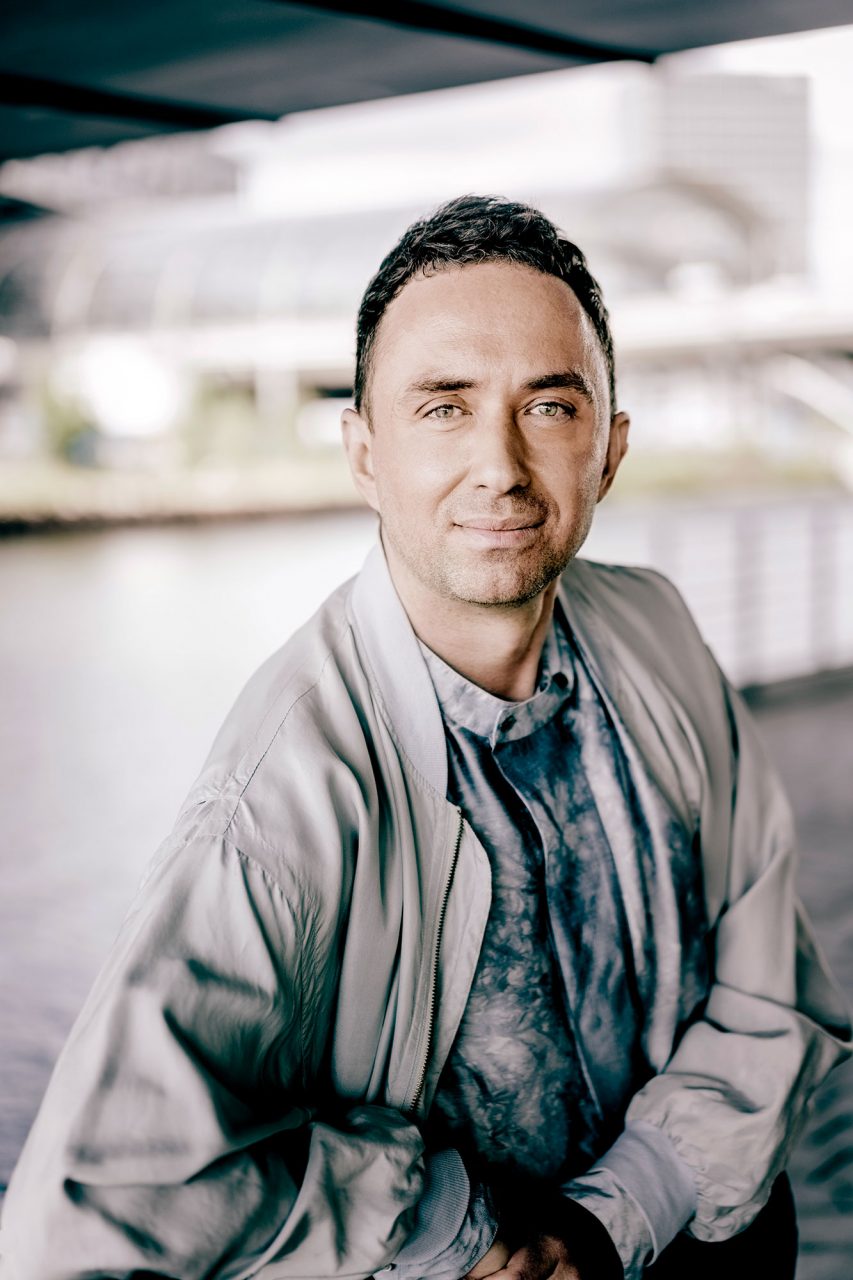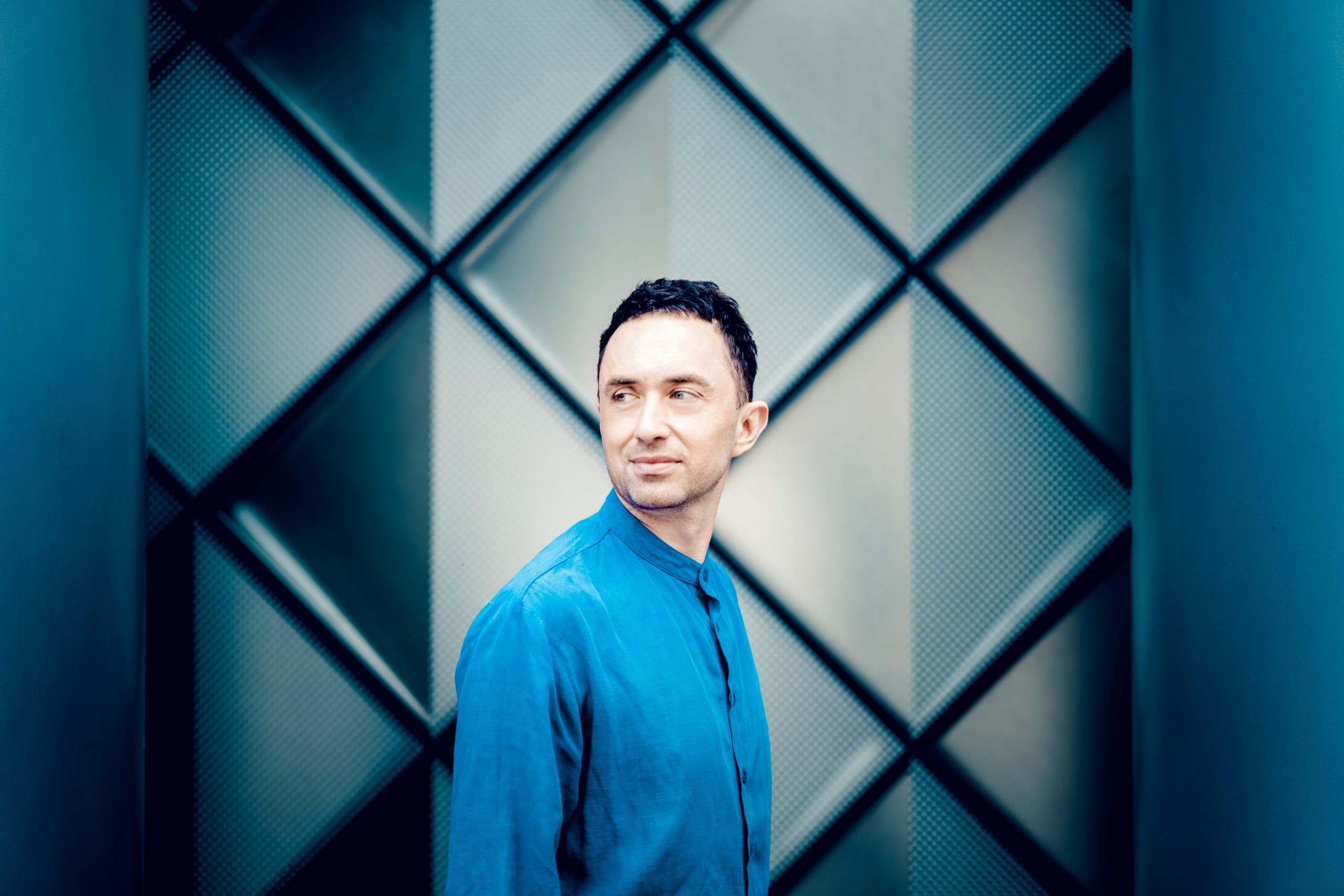
Biography
Catalin Serban is a pianist whose playing reveals rare depth of expression and clarity of intent. His musical voice combines emotional subtlety with technical brilliance and transparency of sound.
Born in Bucharest, he was shaped early on by a close connection to vocal music — an influence that continues to inform his artistic identity today.
As a soloist, and chamber musician, Serban performs internationally in major venues including the Konzerthaus Berlin, Berlin Philharmonie, Bucharest Athenaeum, Bremer Glocke, and Stadtcasino Basel.
His programs, recordings, and broadcasts are characterized by a thoughtful engagement with the emotional and structural richness of the Romantic and early modern repertoire, which he brings to life “outstandingly equipped technically … with enormous brilliance and unpretentious virtuosity” (Badische Zeitung).
Here the pianist Catalin Serban must be mentioned first, who, especially when performing Liszt’s First Mephisto Waltz with bravura and an almost demonic possession, reminds one of Horowitz’s late performance at Carnegie Hall.“
Lübecker Nachrichten
In recent years, Catalin Serban has increasingly devoted himself to chamber music and curatorial work. Invited to festivals such as the Beethovenfest, the Brahms Festival Lübeck, the Franconian Chamber Music Days, and the Oberstdorf Music Summer, he is now the founder and artistic director of the chamber music project Spielende Insel.
The series brings together outstanding musicians in distinctive venues such as Kühlhaus Berlin, creating bridges between chamber music, visual art, and literature. With its ambitious and conceptually rich programs, Spielende Insel has become an inspiring space for artistic diversity.
The 2025 edition, Liberating Echoes, focused on music created in times of silence and oppression – with works by Ullmann, Korngold, Zemlinsky, Klein, Schönberg, and female composers such as Alma Mahler-Werfel, Michaela Catranis, Amy Beach, and Fanny Hensel, alongside Brahms, Ravel, and Chausson. Exploring the dialogue between music, history, and art, the festival featured performances by Veriko Tchumburidze, Tobias Feldmann, Andrei Ioniță, Pablo Barragán, Sindy Mohamed, and Lisa Jacobs, framed by installations and artworks by Kristina Weiss and Enikö Márton.
At a very young age, Serban began his musical education at the George Enescu Music High School in Bucharest. By the time he came to Berlin to study, he had already won prizes at national and international piano competitions and was hailed by critics as a leading representative of the new generation of Romanian musicians. His virtuosity, “delicate and clear phrasing,” and “complex expressiveness” (G. Constantinescu, President of the Romanian Music Critics’ Union) were noted early on. In Germany, he was praised for the “breathing, songful suppleness” (taz) of his performance at the European Piano Contest Bremen.
The rapturous quality of Serban’s performance is utterly mesmeric.“
Gramophone Magazine
Catalin Serban received scholarships from several foundations and studied with Professors Martin Hughes and Konrad Elser at the Berlin University of the Arts and the University of Music Lübeck, receiving further artistic guidance from Claude Frank, György Sebők, Pascal Devoyon, Théodore Paraschivesco, and Elena Lapitskaja. Alongside his concert career, he is a dedicated teacher at the Lübeck University of Music and the Hanns Eisler School of Music Berlin.
In his recordings, Catalin Serban creates resonant dialogues between composers – as in Des cloches sonores (2018), where Enescu and Scriabin meet Schubert, and in Resemblances (2022), which interweaves works by Chopin and Scriabin into a double portrait. “Scriabin seems to me like a continuation of what Chopin developed,” he says – an idea that shapes his refined and emotionally charged interpretations. Critics have praised the results as “piano playing full of energy and expressiveness” (piano news) and “wonderfully diverse in tone color” (Bechstein).
These explorations continued with Mélodies infinies (Naxos, 2024), featuring piano quartets by Fauré and Enescu with Suyeon Kang, Karolina Errera, and Andrei Ioniță. The international magazine Gramophone described it as “a valuable addition to the discography of Enescu’s much-underrated chamber music,” highlighting Șerban’s “softer-grained, more expansive view that puts Enescu’s ecstatic lyricism front and centre… The rapturous quality of Șerban’s performance is utterly mesmeric.”
In 2026, he will take on the artistic direction of the new chamber music series by Konzertleben e.V. at the Max Planck Institute Berlin, curating encounters between leading artists and outstanding young musicians. The same year will also see the release of his new solo album with works by Ravel (Miroirs) and Rachmaninov (Études-Tableaux Op. 39).
